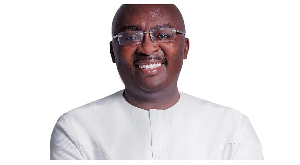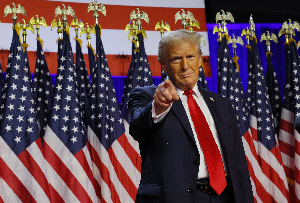The Vision for Alternative Development (VALD) and the Ghana Tax Advocacy Network for Health Promotion, both non-governmental organisations, have called on government to increase taxes on unhealthy commodities in the 2020 budget to finance health in the country.
Some of the unhealthy products that must attract tax increases are tobacco, alcohol products and sugar sweetened beverages.
A statement issued jointly by the two organisations, also urged the Ministry of Finance to legislate to change the tobacco tax regime from ad-valorem to specific tax as recommended by experts in the 2012 tobacco taxation action research in the ECOWAS Region and other best practices.
It appealed to institutions, groups and well-meaning individuals to support the call for the increases on the unhealthy products.
The statement said: “The rapid increase in the consumption of tobacco, and alcohol products as well as sugar sweetened beverages in Ghana, and its associated health threats are becoming alarming, and require immediate attention from the Government to increase tax on all those products to curb the trend.”
It said according to the World Health Organisation (WHO), tobacco epidemic was one of the leading public health threats facing the world today, killing more than eight million around the world annually.
“More than seven million of these deaths are the results of direct tobacco use, while over 1.2 million deaths are a result of non-smokers being exposed to second-hand smoke,” the statement said.
It said despite persistent public education campaigns against tobacco products and the harmful effects of alcohol, the products were still the leading cause of preventable diseases and premature death from cardiovascular, lung and respiratory diseases.
“The upsurge in the consumption of tobacco and alcohol products is not only hazardous to the well-being of the consumers and non-consumers, but also puts a heavy financial and social burden on the economic health of Ghana.
“Without appropriate tax action, the disease burden is going to rise in Ghana, with the worst affected group of persons being the youth, poor and the vulnerable,” the statement said.
It said the Ghana 2017 Global Youth Tobacco Survey in Junior High Schools showed that 8.9 per cent of students, 8.9 per cent boys and 8.2 per cent of girls currently use any form of tobacco products.
“Seven per cent of boys and 5.3 per cent of girls currently smoke tobacco, 0.4 per cent of boys and 1.7 per cent of girls currently smoke shisha,” the statement said.
It said: “Surprisingly there are over 60 alcoholic beverages sold on the Ghanaian market today, increasing our health and economic burden, and many of them claiming to increase sexual ability, yet absolutely nothing is being done by government to prevent the pending and rising epidemic.
“This rise in tobacco and alcohol products use in Ghana is evident in the observation study conducted VALD, which shows that tobacco and alcohol products are the cheapest commodities sold in Ghana today. For instance, a stick of cigarette cost the smoker only 20 pesewas (USD 0.04), with a pack of 10 sticks costing GHS1.50p (USD 0.30) and a sachet of alcohol costing the drinker 50 pesewas (USD 0.10). On the other hand, a number of countries like New Zealand have raised prices up to USD 20 per pack of cigarettes, making them very expensive.”
The statement said: “The fact is that, the low cost of these products is targeted at the youth, poor and vulnerable groups, whom when they contract non-communicable diseases, such as cancers, stroke, heart diseases, lung diseases and blindness, among others.
The costs of treatments are not even covered by the National Health Insurance Scheme, thereby imposing untold financial hardship and worsening poverty levels on these vulnerable groups.”
It said at 13.02 per cent of retail price, Ghana’s excise tax, as a percentage of cigarette price, could be significantly increased to meet the WHO minimum benchmark of 70 per cent of retail price, adding that, tobacco products have not received tax increment in five years (2015-2019), which was evident in the cost of tobacco products in the country.
The statement said tobacco and alcohol tax increase would provide available revenue for the government to finance health, finance the NHIS and above all help the attainment of Ghana’s Universal Health Coverage by 2030.
It said the revenue surplus from increasing tobacco and alcohol tax would also go a long way to support the government’s agenda of Ghana Beyond Aid. The statement said Tobacco Atlas revealed that more than 5,000 Ghanaians die of tobacco diseases annually, with economic cost amounting to about GHC97 million.
“However, the government can save 22,000 lives by 2025 if all recommendations contained in the WHO “Best Buys”, most especially raising taxes on tobacco and alcohol and other unhealthy products are implemented,” it said.
“Countries like Egypt, Mexico and Philippines, among others, had implemented high taxes on tobacco, and alcohol and the results are overwhelming, improving the lives of their people, Ghana can do same.”
The statement said: “It is common knowledge and research has proven that tobacco and alcohol tax increases and price policies are widely recognized among the most effective means of influencing the demand for tobacco and alcohol.”
Business News of Friday, 18 October 2019
Source: GNA

















